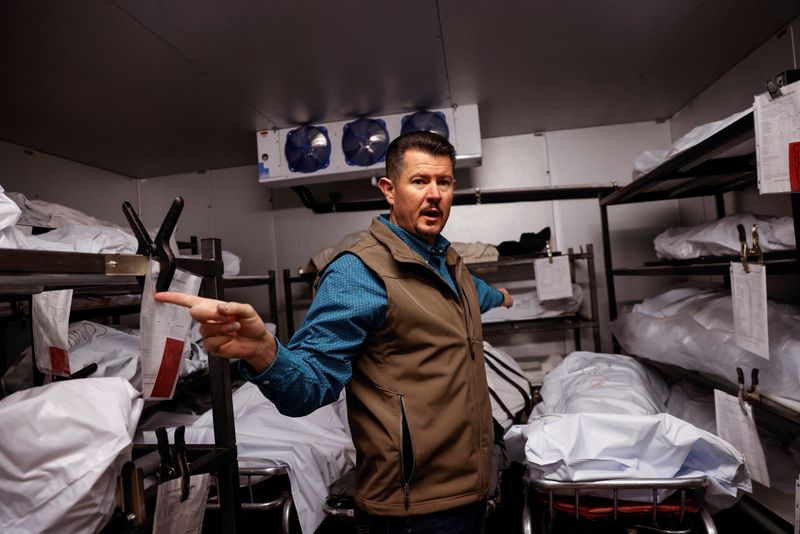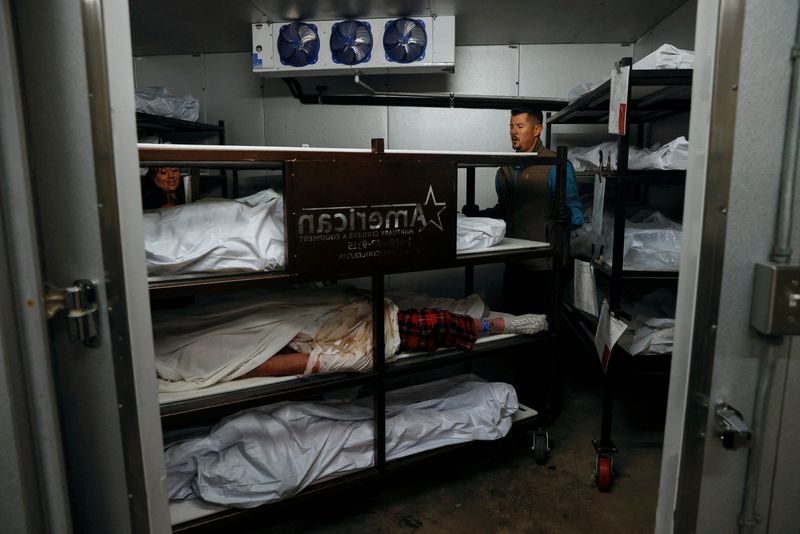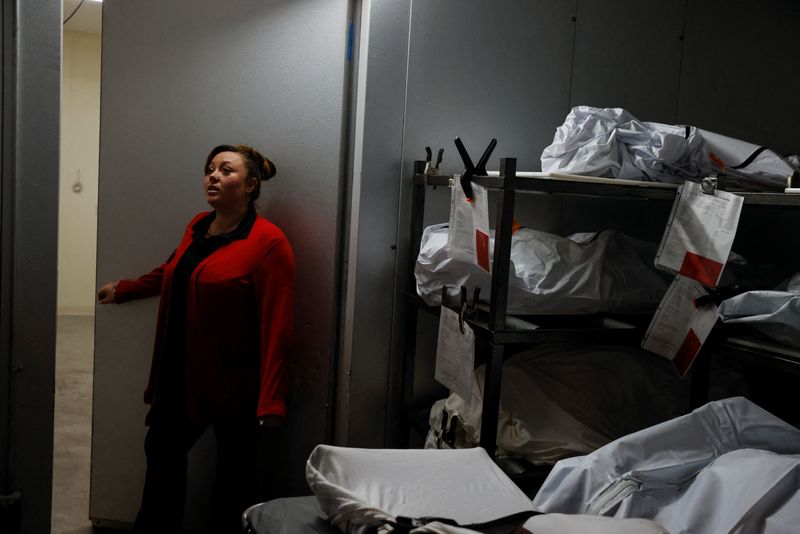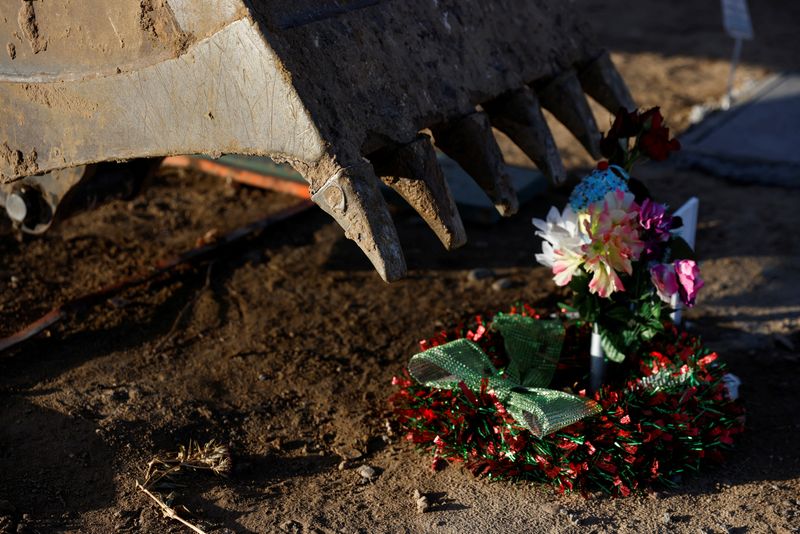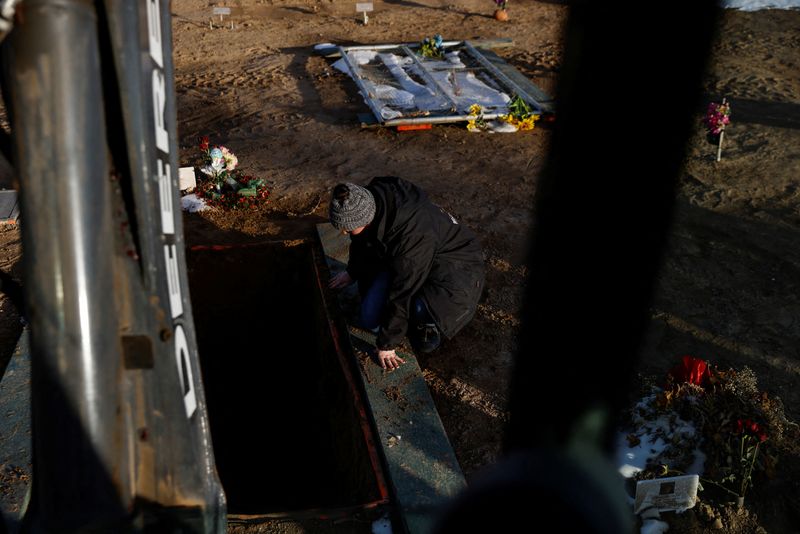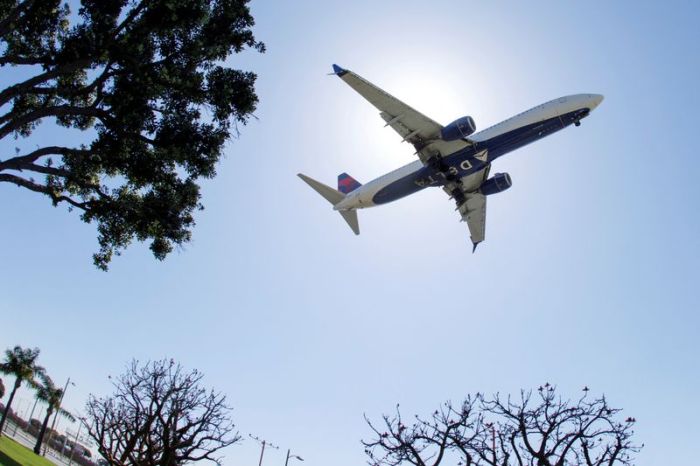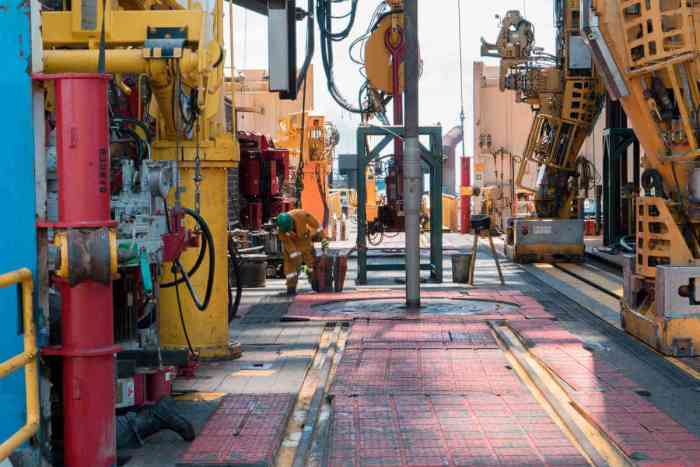FARMINGTON, N.M. (Reuters) – New Mexico sheriff Shane Ferrari is used to planning ahead to buy supplies like ammunition that have run short in the pandemic.
In the past 12 months, he has also had to buy enough coffins and shelving for COVID-19 victims who are stacking up at the family funeral home that he found himself running.
Ferrari took over the funeral business in Farmington, located in San Juan County in the state’s northwest corner, last December when his father, the previous manager, died of COVID-19.
He has been “overrun” with bodies as San Juan suffers one of the highest per-capita COVID-19 death rates in New Mexico, which is among the top five U.S. states in new cases for the week to Dec. 5, according to Reuters data.
Like other U.S. counties topping virus death rankings, San Juan is rural, has pockets of very low vaccination and voted overwhelmingly for former President Donald Trump in 2020.
Ferrari’s funeral parlor is getting around three times as many cases as normal, about three quarters of them COVID-19 deaths. He plans to buy an extra refrigerated unit at the weekend.
“I ask the Lord everyday, ‘Use me as your tool, put me where you need me,’ and I never thought in a million years I’d be sheriff and running a funeral home in the middle of a pandemic,” said Ferrari, 45, sitting in his office decorated with Navajo sand paintings and weavings his father traded for goods.
Putting aside politics and vaccination, San Juan’s morticians and grave diggers deal in a matter-of-fact way with COVID-19 deaths in their “four-corners” area that spans the Navajo Nation, New Mexico, Arizona, Colorado and Utah.
“We’re in the middle of a pandemic and we’re human and we’re going to lose people,” said Ferrari, a 25-year police veteran and registered Republican who plays down suggestions he should run for state governor.
During the day, Ferrari’s deputies visit homes of deceased COVID-19 patients and notify relatives of their deaths. He uses evenings to plan for their interment.
‘BODY TETRIS’
At the nearby Kirtland Fruitland Cemetery, a high schooler operates a backhoe to keep up with COVID-19 burials. She is the third generation of her family to dig graves as a community service. In just over a year, they have excavated as many sites as they would normally in 10 to 15 years, says her mother, Penny Washburn.
Joanna Martinez, 34, operates Ferrari’s cremation machine. She works through the night to get ashes to grieving families facing up to one-month waits due to COVID-19 paperwork.
A body comes in with a red tag on its white bag, indicating it is COVID-19 positive. There is no refrigerated space left so Martinez moves another body out for cremation, and slides the new one into its place.
“It’s just kind of like playing body Tetris, figuring out where you’re gonna put who, where,” says Martinez, who sports a lady death “La Catrina” tattoo on her right arm.
She is unvaccinated and has lost family members to COVID-19.
“If I’m going to die, I’m going to die, it’s going to happen. I’m not going to sit here and be scared,” she said.
New Mexico is among the poorest U.S. states, and sometimes Ferrari will take hunting gear or household goods as a down payment from a family who cannot afford the $1,895 he charges for a cremation.
He sees friends losing loved ones to COVID-19 “over and over” and urges residents to stay at home and mask up if they do not want to get vaccinated. He also sees signs of more people getting vaccinations.
“I think the naysayers have a tendency to stop and take a second look at things the minute they lose somebody who’s close to them,” said Ferrari, who previously had COVID-19 and plans to get vaccinated this month.
(Reporting by Shannon Stapleton in Farmington, N.M.; Writing by Andrew Hay; Editing by Leslie Adler)

